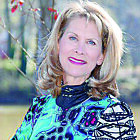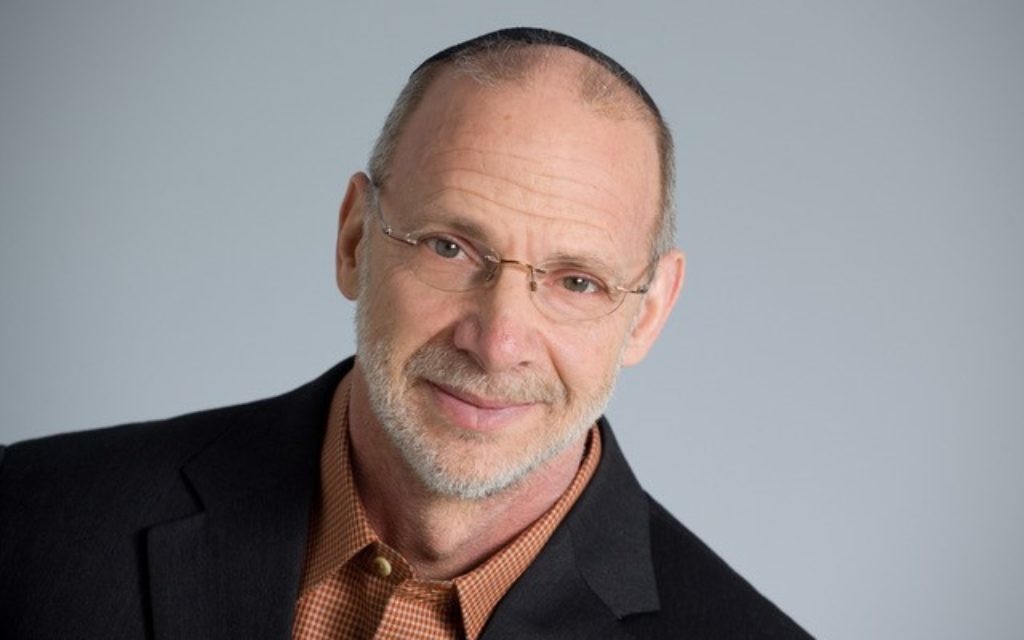Wheelchair-Bound Sex Therapist Offers Tips
Mitchell Tepper highlights challenges faced by people with disabilities.
Local sex expert Mitchell Tepper has a laundry list of degrees and honors. With a master’s in public health from Yale and a doctorate in human sexuality education from the University of Pennsylvania, he is certified by the American Association of Sexuality Educators, Counselors and Therapists as a sexuality educator and counselor.
A diving accident at age 20 left Tepper paralyzed from the neck down, but he is motivated to help others experience joy and succeed in intimate relationships.
He’s also working on a documentary, “Love After War.” Go to Loveafterwar.org to register for the newsletter, watch the trailer and help complete the film.
Get The AJT Newsletter by email and never miss our top stories Free Sign Up
Tepper, along with wife Cheryl and son Jeremy, is a member of Congregation Beth Tefillah.
Jaffe: Describe the documentary.
Tepper: In “Love After War,” patriotic young men and women volunteer to defend their country, experience catastrophic injuries, and come home to face emotional and physical barriers to intimacy. The stories are painful, but all have won their personal battles for love. The hope of these couples is that their stories will help future injured veterans. There will be a companion website to offer information, support and access to trained professionals.
Jaffe: How did you get involved?
Tepper: In 2006, I was asked to speak to 100 grievously injured veterans at the Road to Recovery Conference. It was a very moving experience. None of the participants had received any support with their intimate relationships; they had suffered in silence until this point. I was working at Morehouse School of Medicine with former Surgeon General Dr. David Satcher in the Center of Excellence for Sexual Health. We felt an urgency to focus on the topic because failing intimate relationships were the leading cause of suicide in the military at that time. We held a national conference in Washington, D.C., in 2008. I subsequently worked with the VA to help establish marriage enrichment programs for injured veterans and with Walter Reed National Military Medical Center.
Jaffe: What are some common myths about sexuality among people with disabilities that you are debunking?
Tepper: The myths include “No one’s going to want someone with a disability as a partner”; “My partner left me, cheated on me or avoided having sex with me; therefore, I’m not lovable”; “Sex is not the same, it’s not normal, so it’s pointless; why bother?”; “I have no feeling; my sex life is over.”
Jaffe: What do you draw upon from Judaism in this work?
Tepper: I consider my work as my calling, and a spiritual endeavor. It’s a part of me, as is my Judaism. There are some very fundamental tenets that come straight from the Torah and out of Bereishit. Hashem created light on the first day but did not create the celestial bodies until Day 4. The light on Day 1 can be interpreted as a universal light that keeps us connected to G-d and each other. Then G-d made man in His image, meaning that we’re all holy with intrinsic value, regardless of ability or disability. I operate from the underlying belief that we all yearn for connectedness, specifically an intimate relationship where we are truly known and fully accepted.
Jaffe: I loved the movie “The Sessions” with Helen Hunt. Are there indeed therapists who practice this?
Tepper: I know Cheryl Cohen Green, the actual surrogate partner therapist who worked with the character portrayed in the movie. There are indeed people trained to do hands-on work with folks who do not have a partner. Only a small part of the work includes sexual intercourse. More time is spent reducing anxiety and developing social/sexual skills.
Unfortunately, well-trained surrogate partner therapists are scarce, and the people who need them the most can’t afford them because it’s not covered by insurance. Interestingly, Israel is the most advanced country in the world when it comes to integrating surrogate partners into sex therapy practice and publishing research.
Jaffe: What is “tantra” sex, mentioned on your website www.drmitchelltepper.com?
Tepper: I conduct a workshop I call “Tantra: Mindfulness and the Yoga Sex.” Mindfulness comes from the same root as tantra. I operationalize this as “stop, focus and connect.” Yoga has a similar or as tantra. Yoga is good to learn how to connect with your own breath and body. When you’re connected with yourself, it’s easier to connect with others.
Jaffe: What is one nugget of sexual advice you can give to nondisabled couples reading this?
Tepper: When you go to bed tonight, get in on the opposite side of the bed before approaching your partner. You’ll be surprised how different it is when you go to face your partner and perhaps caress them with your less dominant hand. It’s the Atlanta Jewish Times, so I’ll stop there.





comments